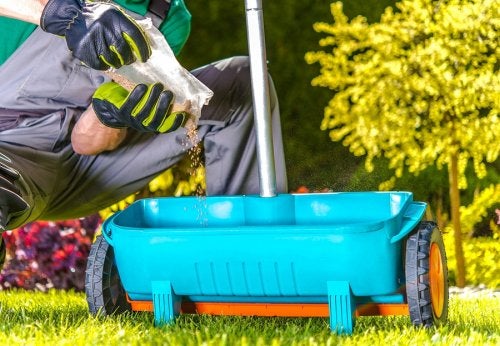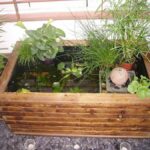Nettle slurry, for example, has traditionally been used to naturally nourish crops. In this way, the use of chemical products that could harm the environment and the health of plants and people is avoided.

Naturally nourishing plants is one of the basic things to keep them healthy and in good condition, especially when we talk about crops. However, it is not always necessary to use fertilizers and chemical fertilizers. In fact, these could even affect our health.
For this reason, in this article, we present some tricks so that you can naturally nourish your plants, avoiding the use of chemical products and in an economical way.
Gardening tips to naturally nourish your crops.
If you want to avoid toxicity and the impact on the environment of chemical fertilizers, we propose a series of homemade fertilizers that you can make at home in an easy and economical way. In addition, they will give your crops more strength and vitality. Take note!
Banana tea.
The banana peel is rich in potassium. In this way, it will help the flowers bloom. Furthermore, potassium is quickly absorbed by plants once it is placed in the soil.
On the other hand, the high phosphorus content of the banana peel will also help your crop to be stronger and photosynthesis to take place correctly. It is a totally ecological way to naturally nourish your crops.
Preparation.
- First, cut the banana peel and place it in a pot.
- Then add water to cover the peel.
- Then boil for about 15 minutes.
- Next, let it cool down and then strain it and dilute it in two parts of water.
- Finally, apply it to your crop.
On the other hand, you can also let the banana peels dry and then pulverize them and use them as a powder fertilizer.
Nettle slurry.
A slurry is a ferment of some plant species. The nettle, precisely, will provide your crops with a supply of nitrogen necessary for their proper growth. In addition, it works as a fungicide and insecticide.
Preparation.
- First, put a quantity of nettle in a container. Make sure you don’t include the roots.
- Then cut it into small pieces and leave it for two hours in water without chlorine.
- Later, strain the water and apply it to your crop.
Coffee leftovers.
After preparing a good coffee, do not throw away the remains of this drink. On the contrary, you can save them to use as fertilizer for your crops, especially acidophilic plants. Indeed, they are an ideal natural fertilizer for plants that require acidic soils, such as blueberries.
Preparation.
- First, put 6 cups of coffee grounds in a bucket with at least 20 liters of water.
- Then let it sit for two to three days.
- Finally, place the preparation around the roots of your plants.
You can also apply a small amount of coffee grounds directly to the roots of the plants. However, be careful not to overdo it, as too acidic soil could be harmful.
Eggshell.
The eggshell is ideal for naturally nourish crops such as peppers and tomatoes. In addition, you will avoid rotting. Indeed, the high calcium content of eggshells is ideal for practically all fruit crops.
Preparation.
- First, let the peels dry well.
- Then turn them into powder.
- Finally, apply to the soil around the plants.
Wood ash.
The use of natural fertilizer with wood ash to and help maturation of crops, particularly fruit. In addition, it will also help avoid pests. However, its use on acidophilic plants is not recommended, because it can increase the pH of the soil.
On the other hand, keep in mind that you must choose quality wood, which does not contain heavy materials, chemicals or varnishes.
Preparation.
- Simply dilute the ash in the irrigation water and apply in the irrigation.
- On the other hand, you can also place a small layer of ash around the stems (without actually touching them) and bury it in the ground.
By applying some of these natural fertilizers you will avoid the use of chemical products, dangerous in several ways and that, in addition, can be absorbed by the crop. On the other hand, you will be collaborating to take care of the environment in a sustainable way.


